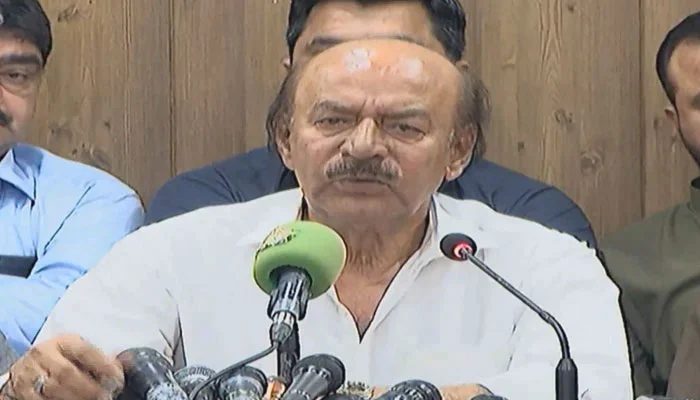Pakistan Peoples Party’s Sindh President, Nisar Ahmed Khuhro, has called on the federal government to immediately withdraw from a controversial canal project.
Sindh has been facing a prolonged water crisis due to insufficient federal support and poor management. The province’s irrigation system is under significant strain, with acute water shortages affecting agriculture and daily life. Sindh has repeatedly voiced its concerns over inequitable water distribution, which has fueled disputes over water rights and allocations.
Khuhro’s statement followed PPP Chairman Bilawal Bhutto-Zardari’s criticism of the federal government’s unilateral approach to water resource management. Bilawal urged for consensus-driven policies, emphasizing that recent decisions to construct new canals could escalate disputes, drawing parallels to the contentious Kalabagh Dam project.
In his remarks, Khuhro questioned, “If there is no additional water, where will the water be sourced for these new canals?” He highlighted that Sindh is not receiving its rightful water share under the 1991 Water Accord and expressed strong objections to the continuous draining of water from the Chashma-Jhelum Link Canal and TP-Link Canals for new canal projects. He reiterated that Sindh opposes these plans entirely.
Gas Supply Issues in Sindh
Addressing gas shortages, Khuhro demanded that Sindh be provided its constitutional share of gas. He criticized the severe gas load shedding and low pressure in the province, labeling it a violation of Article 158 of the Constitution, which mandates that provinces producing gas must have their needs met first.
Khuhro also rejected the Oil and Gas Regulatory Authority’s (OGRA) decision to raise gas prices by 25%, urging Prime Minister Shehbaz Sharif to review the matter.
Earlier, Sindh Information Minister Sharjeel Inam Memon had expressed alarm over the worsening gas shortages in the province, noting their adverse impact on daily life and industrial operations.
In response to growing concerns, PM Shehbaz recently directed authorities to ensure an uninterrupted gas supply to domestic consumers during winter without delay.


